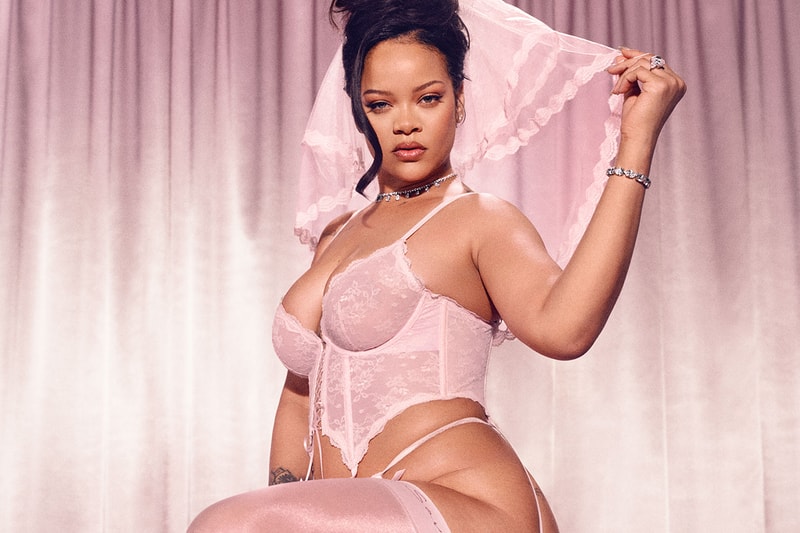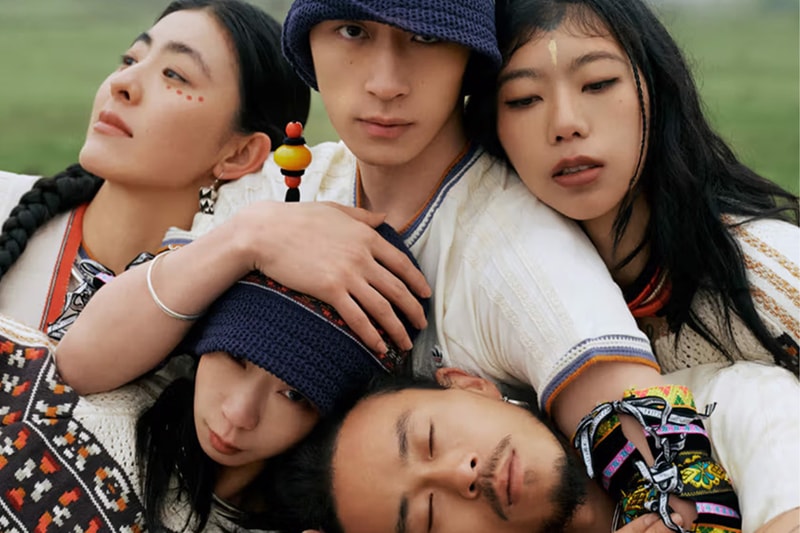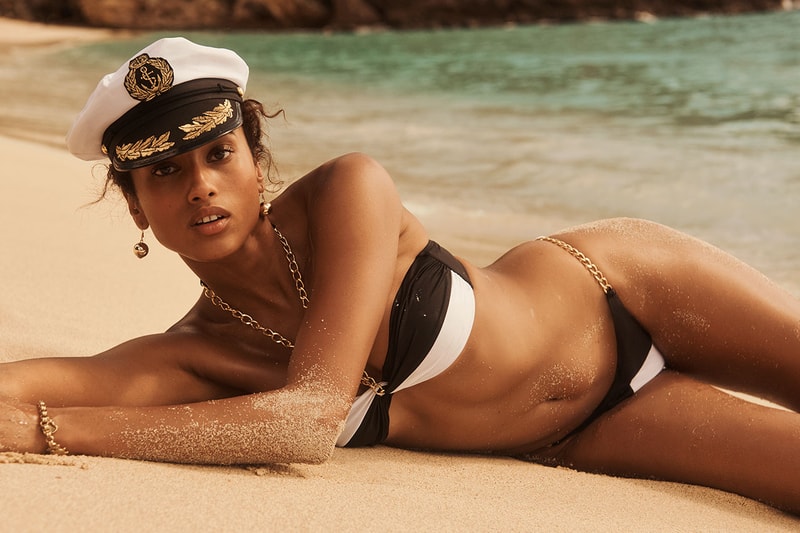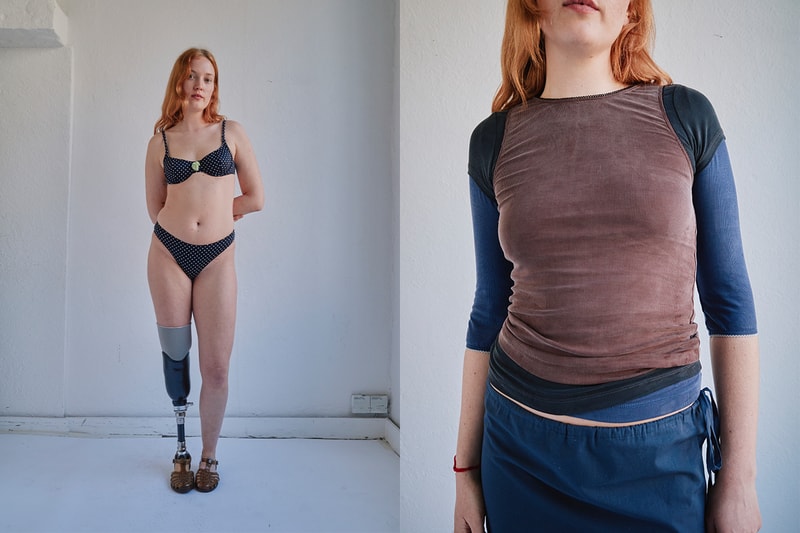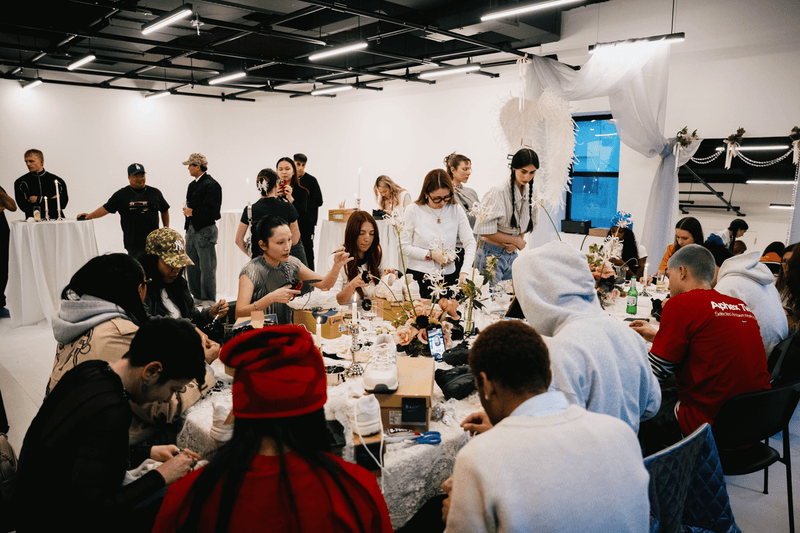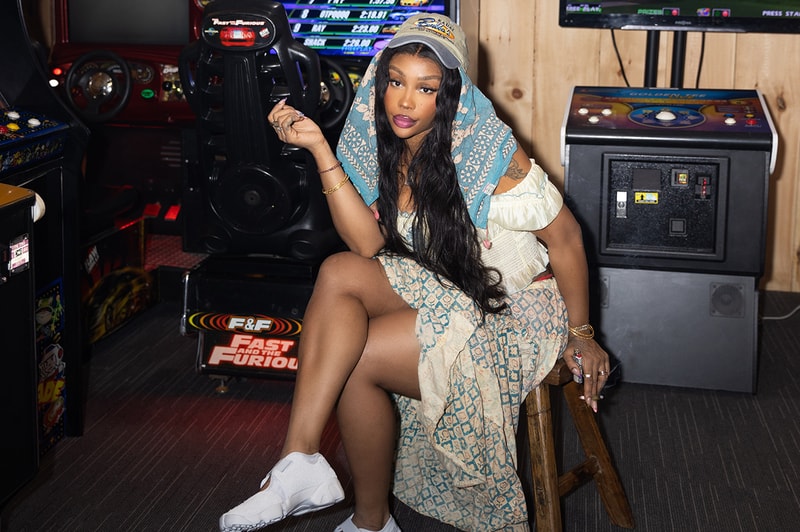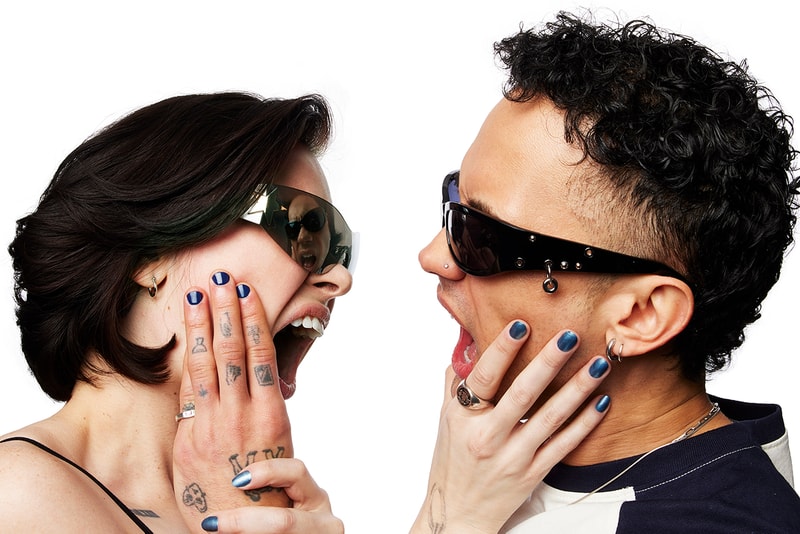How To Take Care of Your Natural Hair: A Guide for Black Women
info@hypebae.com (HYPEBAE) Mon, 01 Feb 2021 HYPEBAE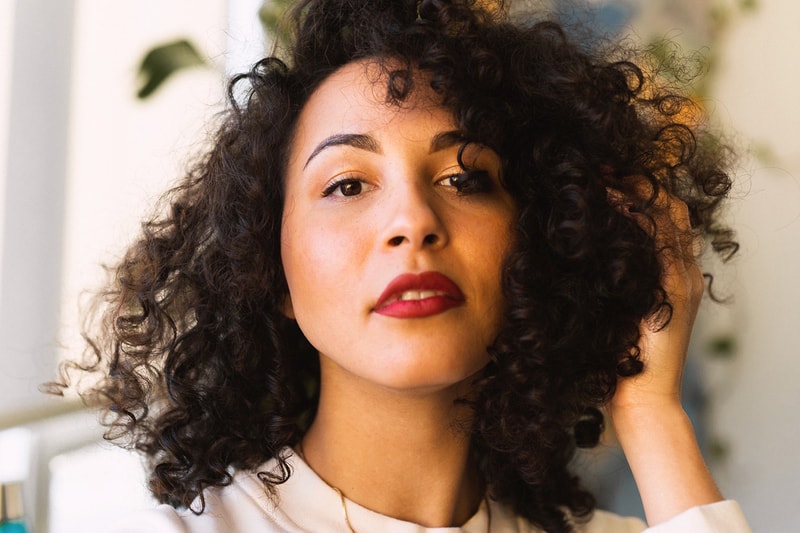
Whether you're a Black woman who grew up in the wake of the weave or in the heyday of the bone-straight hair trends of the '90s and 2000s, your relationship with your hair most likely revolved around the need to alter your natural hair to fit the norm. For so long, the trends have put emphasis on long, sleek hair you can run your fingers through, large-barrel curls, and beachy waves that are miraculously achieved from a spray bottle. While these are all beautiful hairstyles in their own way, it's safe to say that they are styles that require hair most Black women don’t naturally have.
As a teen sponge to all things fashion and beauty, I absorbed a mass amount of straight hair paraphernalia. Like many other Black women, I became obsessed with the idea of having straight hair -- like nearly every woman on the cover of a magazine; like nearly every actor I saw on TV; and like nearly every girl I went to school with in my very white suburban neighbourhood. I straightened my hair religiously for over 12 years, until one day I was running late for a function and didn’t have time to flatten my curls. To my amazement, nearly every person at that event commented on my natural hair -- how beautiful it was, and how they wished they had my volume and curls. Somewhere in between the Uber ride home with my boyfriend (who was fixated, smiling at my fro) and some incredible hair advice on Tracee Ellis Ross' Instagram Stories, I found myself ditching the straightener altogether.
Black hair — especially biracial hair — is about as individualized as a fingerprint: no two women have identical hair needs.
It would be easy for me to blame the lack of Black representation in media for my flat iron love affair, but as a biracial Black woman who grew up mostly living with my white mother, I was also tasked with learning about caring for my hair through the Internet and hairstylists who knew little about caring for natural hair. “My hair is super curly too,” or “I have this one client with hair just like yours,” they’d say. When in reality, my hair was unrecognizably different than my white stylists' waves, or their one client with 4A textured hair. With a lack of ancestral knowledge or access to other Black women in my family, I began collecting tools, tips and tricks from Black beauty bloggers, Black stylists and the Black women in my life, in the hope of finding a one-size-fits-all Black hair routine. However, two years post-straightener-breakup, I’ve come to the realization that Black hair -- especially biracial hair -- is about as individualized as a fingerprint: no two women have identical hair needs. This perhaps explains why hairstyling and braiding have and continue to be an integral part of African cultures, modern Black culture and the African diaspora, acting as everything from an unspoken language written in braids, to simple bonding points between family and friends.
Black hair bearers now have the power to reimagine what we deem as beautiful and rewrite society’s relationship with Black hair.
While it’s clear that the natural Black hair movement has taken off in the past five years, a study by the Perception Institute suggests that Black women still perceive a level of social stigma against their own natural hair. The culprit? It’s a villain of many faces that’s penetrated nearly every corner of the beauty industry and beyond. It shows itself through a generational lack of authentic representation. It’s a communal lack of hair knowledge, after generations of assimilation and ethnocide. And through residual racism, there's a lack of accessible products geared towards Black hair. Though each of these elements affect every person on a varying level -- some subliminal, some as a smack in the face -- there is no denying how walking down a packed drugstore aisle of hair products that aren’t made for you makes you feel like it is you that needs to change.
The recent influx of diversity may have given rise to more listicles that feature products catering to the Black community. However, the movement should also recognize that to Black women, our hair is more than a monetary and social selling point, but a storytelling tool that has been used by a multitude of African cultures for thousands of years. We need accessible hair products that are made for our hair, solidarity and representation. It is pertinent that the collective consciousness realize Black hair is inadvertently political. When less than one hundred years ago, it was a crime or detriment to our livelihoods to not be married to Eurocentric beauty ideals, Black hair bearers now have the power to reimagine what we deem as beautiful and rewrite society's relationship with Black hair. Breaking up with our straighteners is one step towards natural hair acceptance, but the joy and reclamation of culture that comes with identifying and embracing our own unique hair stories, that's gravity-defying on a whole other level.
Black Hair 101: Know Your Hair Type
There are many ways to begin your natural hair journey, and it’s definitely worth noting that there is no "right" way. I spent six months deep conditioning my 3C hair before slowly weaning myself off almost all of my hair products. Currently, I take a very natural, no-wash approach. This consists of me wetting my hair every second day, washing with apple cider vinegar when or if I have any scalp buildup (usually twice a month), and adding a small amount of coconut oil to my hairtips when they feel dry.
For styling, I twist my hair out of the shower with zero product, and then gently diffuse on the lowest hairdryer setting with a small amount of hairspray (if I want volume) or just let air dry. When I am not feeling like doing my hair, I slick it back into an Alicia Keys-inspired slicked back bun using a small amount of Layrite.
Black or mixed hair is not all the same. Learning your hair type and what kind of attention and products it needs is your key to achieving the curls, coils and texture of your dreams.
Curls (3B-4A)
Think loose, bouncy curls, ringlets, slinky springs and frizz.
Coils (3C-4B)
Tight curls, spongey springs, and textured hair that ends with twists.
Textures (4A-4C)
Dense sponge textures and afros that shoot for the stars.
Heat Is the Enemy
Curled, coiled and textured Black hair have a structure unlike no other. With cuticles that remain more open than others, high and medium heat can severely damage your curl pattern. So how do we protect our gorgeous bouncy manes, afros and textured masterpieces?
1. Rinse your hair with cool water.
2. Avoid straightening your hair.
3. Avoid high-heat settings on hairdryers.
4. Use a diffuser attachment on your hairdryer.
5. If you do choose to use heat of any kind, use a heat protectant.
Universal Products That Work With You, Not Against You
Because we know that “for all hair types” disclaimer can’t be trusted, and sometimes you want something more than the coconut oil or “African Gold” your parents swore by.
Wash
A huge advantage to having afro hair is you don’t need to wash it as frequently as other hair types. You're going to want to set a distinct wash day -- this will depend on the amount of oil your hair produces, as well as your curl pattern. For example, I’m somewhere in between a 3B and 3C and I wash my hair once a week, alternating with a wash (not shampoo!) and apple cider vinegar. Any more than that and my hair becomes dry and fuzzy.
Melanin Haircare African Black Soap Reviving Shampoo
Formulated for melanated hair, this shampoo is enhanced with mineral-rich, moisturizing cocoa and shea butters, argan and pro-vitamin B5 to condition and promote elasticity and flexibility of the hair. Nourishing and anti-inflammatory oils help soothe, calm and heal the scalp, while charcoal powder helps absorb toxins on the hair and scalp to detoxify and gently exfoliate for healthy hair growth.
Kevin Murphy ANGEL.WASH
This wash is a great alternative to a conventional shampoo for 3B-4A curls. Formulated with zero harsh detergents, the ANGEL.WASH helps remove product buildup and extra oil, without entirely stripping hair of essential curl cultivating oils.
Condition and Nourish
Water and moisture are your best friends. The key to conditioning Black hair is to seek out non-greasy formulas that contain little to no silicones or waxes -- these ingredients may cause buildup on your scalp and unnecessary hair-washing.
Kevin Murphy ANGEL.RINSE
This conditioner is light enough for those with 3B curls, yet nourishing enough for those with 4C tight textures. Formulated without silicones or oils that make your hair droop, this heavenly scented conditioner helps your hair defy gravity.
Melanin Haircare Multi-Use Softening Leave-In Conditioner
Leave-in conditioners are designed to soften, smooth, detangle and help repair your hair from the inside out. This formula contains some of the most effective hair-strengthening and conditioning ingredients, namely pro-vitamin B5, bamboo extract, wheat amino acids and hydrolyzed wheat proteins to help strengthen hair and reduce breakage.
Pattern Beauty Jojoba Oil Hair Serum
Big moisture, but without the weight. Use a minimal amount of this serum in your hair for curl definition on wet or dry hair. This also doubles as a scalp treatment that nourishes your hair at the root, without the buildup potential of wax- and silicone-based treatments.
Hold and Style
Pattern Beauty Strong Hold Gel
The only gel you’ll ever need to buy, Pattern Beauty’s Strong Hold Gel shows tough stragglers who’s boss. Ideal for slick looks that need extra support, expect a long-lasting hold without breaking hair or edges. Sea moss, aloe vera and chia seeds work together to nourish and fortify curls.
Melanin Haircare Twist-Elongating Style Cream
With a lightweight texture, this style cream is formulated to provide instant hydration and lock in moisture into your hair, allowing for easy detangling. A truly nourishing product, the cream combines five natural hair butters including shea butter, mango butter, cocoa butter, kokum butter and cupuacu butter.
Jamila Pomeroy is an internationally-published writer and journalist based in Vancouver, Canada. Aside from journalism, Pomeroy is also a commercial writer, screenwriter for television and documentary, model and actor. Through these forms of creative expression, Pomeroy hones in on a variety of subjects, including culture, art, social activism, fashion and sustainability. You can connect with Pomeroy on Instagram and her website.
